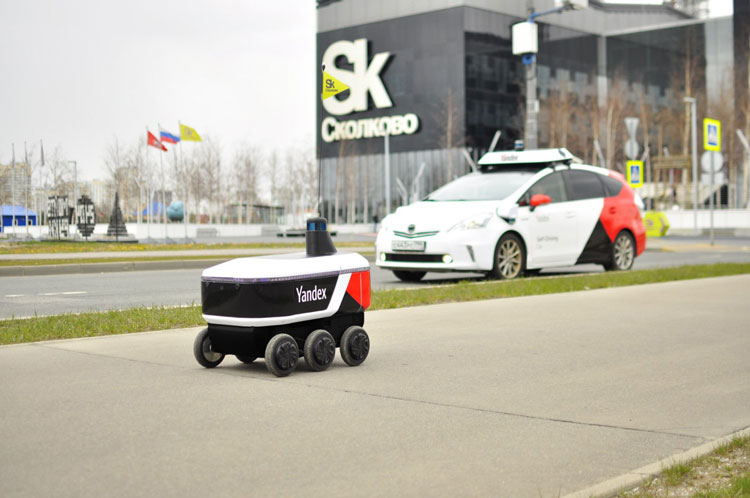Uber is set to sell its ownership stake in a handful of joint ventures with Russian Internet giant Yandex.
According to a release from Yandex, Uber’s board approved the sale of shares in Yandex.Eats, Yandex.Lavka and Yandex.Delivery. Uber is set to sell 33.5-percent stake in the grocery delivery service, the hyper-local convenience delivery program the company’s last-mile logistics solution respectively.
Uber will also sell its 18.2 percent stake in the Yandex Self-Driving Group which has been developing self-driving vehicles and currently has 170 cars in operation with more than 8 million miles diven autonomously. The sale will also include a 4.5-percent stake in a Yandex mobility project dubbed MLU that is focused on ride hailing and car sharing.
In all, the divestiture will net Uber $1 billion in cash. It also gives Yandex the option to buy out Uber’s remaining 29-percent stake in MLU for $1.8 billion, an option that jumps to $2 billion if the company opts to buy out Uber in September of 2023.
The deal will come in two parts, with Yandex acquiring the MLU and self-driving shares by the end of the third quarter of 2021 and the remaining shares by the end of 2021 if things go as expected.
On one hand, the sale represents a nice cash-out for Uber to fuel its ongoing rebound from a brutal 2020 and lackluster 2021. It also signals further distancing from its investments in self-driving technology. The company spun the self-driving company out of its joint venture with Yandex last year, and this deal gives the Russian company 100 percent of the ownership.
Yandex Deputy CEO Tigran Khudaverdyan said in an investor note that it gives the company further flexibility and a full ownership of the key initiatives going forward.
“Since we started our partnership with Uber in 2018, we’ve been able to create and rapidly develop a number of successful businesses—all of them are highly synergetic to our e-commerce initiative and to the entire Yandex ecosystem. The consolidation of these businesses puts us in a great position to further increase strategic management flexibility, while creating new substantial growth potential for our businesses and cross-platform consumer benefits over the years to come,” he said.
Uber rebounded decently in the second quarter, beating Wall Street expectations, but the clear signal here is that the company is redoubling its focus on ride hailing and delivery operations. On the other side, the “flexibility” at Yandex could mean more projects like the autonomous delivery partnership with Grubhub.


